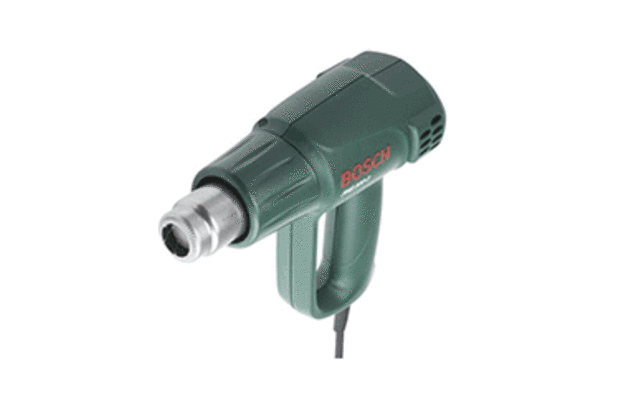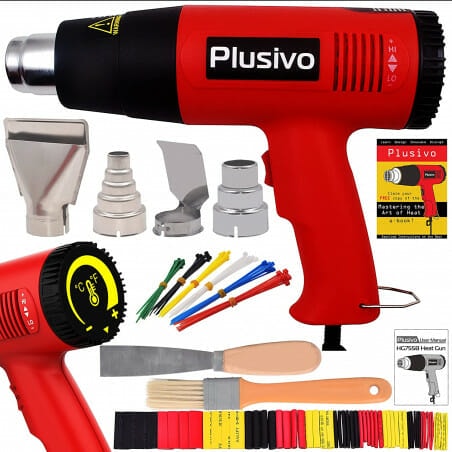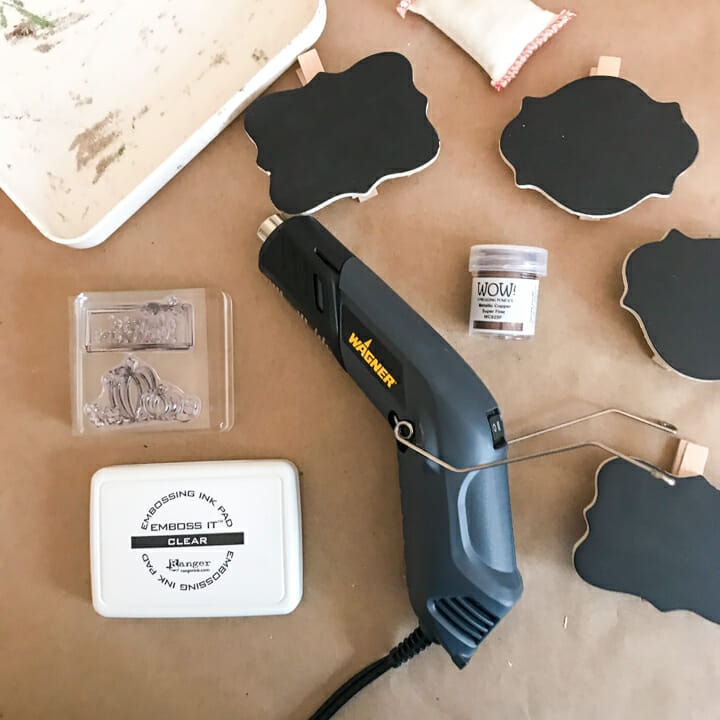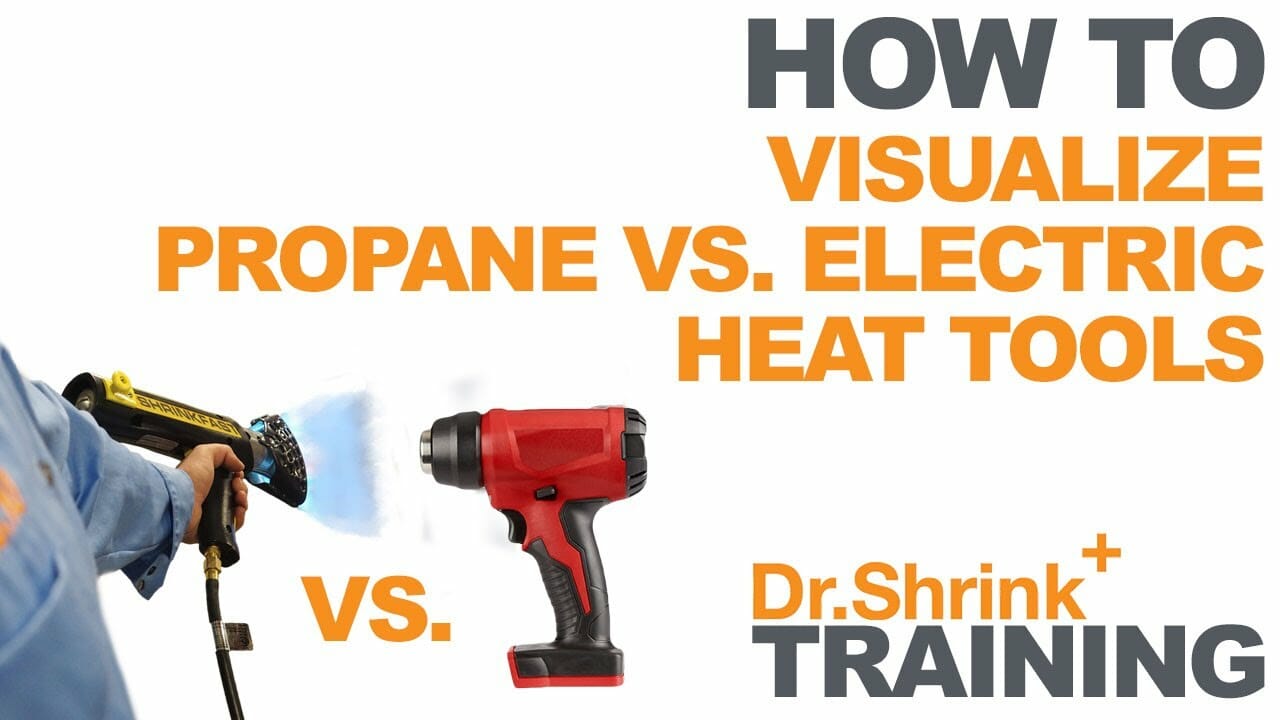
When it comes to heat guns, you may find yourself torn between two popular options: electric and propane. So, let’s dive into the world of heat guns and explore the pros and cons of each.
Electric heat guns are powered by electricity, making them convenient for indoor use. On the other hand, propane heat guns are fuel-powered, offering portability and versatility for outdoor projects.
In this article, we’ll compare electric and propane heat guns in terms of efficiency, safety, usability, and more. By the end, you’ll have a clearer idea of which type of heat gun best suits your needs. Let’s get started!
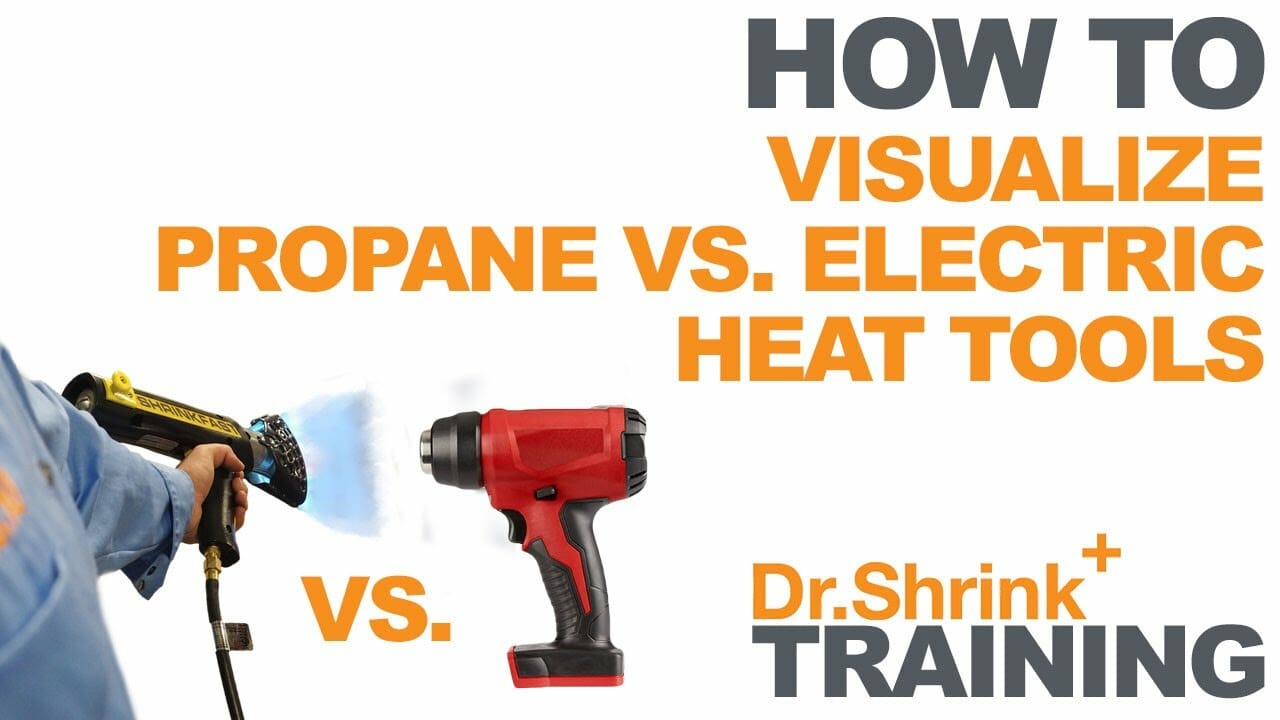
Comparing Electric vs. Propane Heat Gun
Looking for the best heat gun? Let’s compare electric and propane heat guns based on key features:
| Features | Electric Heat Gun | Propane Heat Gun |
|---|---|---|
| Power | Offers consistent power output | Provides high heat output for intense applications |
| Portability | Lightweight and easy to maneuver | Doesn’t require access to electricity |
| Heating Speed | Heats up quickly | Gets hot faster than electric models |
| Temperature Control | Offers precise temperature control | May have limited temperature control options |
| Cost | Generally cheaper upfront | Higher initial cost but lower operating expenses |
Consider your needs and preferences to choose the heat gun that’s right for you.
Overview of Electric Heat Guns
Electric heat guns are powered by electricity and are widely used for tasks such as paint stripping, shrink-wrapping, thawing frozen pipes, and soldering. These guns typically have a built-in electric heating element that produces high temperatures.
One of the key advantages of electric heat guns is their ease of use. They can be plugged into a power outlet and are ready to use instantly. They also tend to be more compact and lightweight compared to propane heat guns, making them convenient for projects that require mobility.
Electric heat guns are generally considered safer to use indoors since they don’t produce harmful fumes. They are also quieter in operation compared to propane heat guns. However, it’s important to note that some electric heat guns can generate a significant amount of heat, so caution should still be exercised when handling them.
Overview of Propane Heat Guns
Propane heat guns, on the other hand, are powered by a propane fuel source. These guns use a small propane gas tank that is connected to the gun’s heating element. Propane heat guns are commonly used for heavy-duty tasks such as removing paint from large surfaces, bending plastic pipes, and drying wet materials.
One of the main advantages of propane heat guns is their high output temperature. They can reach much higher temperatures compared to electric heat guns, which makes them more suitable for applications that require intense heat.
Propane heat guns are also known for their versatility, as they can be used in outdoor settings where electricity may not be readily available.
Propane heat guns are generally larger and bulkier than electric heat guns due to the gas tank and heating element.
They also tend to be louder in operation and emit fumes, so proper ventilation is necessary when using them indoors. Additionally, the fuel supply of propane heat guns needs to be replenished regularly, which may be an inconvenience for some users.
Key Features Compared
When comparing electric and propane heat guns, several key features come into play. Let’s take a closer look at each feature and how the two types of heat guns differ:
Temperature Control
Electric heat guns usually have built-in temperature control settings, allowing users to adjust the heat output to suit their specific needs.
This feature provides greater precision and control, making electric heat guns suitable for tasks that require careful temperature management.
Propane heat guns typically have a manual control valve that allows users to adjust the gas flow, which in turn affects the temperature output.
While it may not offer the same level of precision as electric heat guns, manual control can still be effective for many applications.
Heat Output
Electric heat guns usually have a maximum temperature range of around 1,000°F (538°C). This is often sufficient for most common applications such as paint removal or shrinking materials. However, if you require extremely high temperatures, electric heat guns may not be suitable.
Propane heat guns, on the other hand, can reach temperatures of up to 2,000°F (1,093°C) or more, depending on the model.
This higher heat output makes propane heat guns ideal for heavy-duty tasks that require intense heat, such as welding or working with thick materials.
Portability
Electric heat guns are generally more portable due to their compact size and the convenience of being able to plug them into any power outlet. This makes them a popular choice for projects that require mobility, whether it’s moving around a construction site or working in different areas of your home.
Propane heat guns, although bulkier and heavier, offer greater portability in terms of versatility. Since they don’t rely on electricity, they can be used in outdoor settings where power may not be readily available. This makes propane heat guns suitable for construction sites, outdoor projects, or remote areas.
Durability
Electric heat guns are generally considered more durable due to their simpler design and lack of moving parts. They are less prone to mechanical failures and can withstand long hours of continuous use. However, care should still be taken to avoid overheating the gun, as this can affect its lifespan.
Propane heat guns require regular maintenance and servicing due to their more complex design and the need to refill the fuel tank.
The gas valve and other components may require occasional cleaning or repair to ensure optimal performance. However, with proper care, propane heat guns can be reliable tools for heavy-duty applications.
User Experience
When it comes to user experience, both electric and propane heat guns have their advantages and considerations:
Electric heat guns are generally more user-friendly for beginners or casual users. They are easy to operate with the plug-and-play functionality and offer more precise temperature control.
The compact size and lightweight nature of electric heat guns also make them comfortable to hold and maneuver during long periods of use.
Propane heat guns, while requiring a bit more technical understanding, offer a unique experience for users who need high heat output and versatility.
They are known for their ruggedness and can handle demanding tasks with ease. Additionally, some users find the roaring sound and the flames from the propane heat guns to be visually appealing and satisfying.
Overall, the user experience of electric and propane heat guns ultimately depends on the specific needs of the user and the nature of the project at hand.
Pros and Cons
Electric Heat Guns:
Pros:
- Easy to use and operate
- Compact and lightweight
- Safe for indoor use (no fumes)
- Precise temperature control
- Durable and long-lasting
Cons:
- Limited heat output compared to propane heat guns
- Dependent on an electrical power source
- May take longer to heat up compared to propane heat guns
Propane Heat Guns:
Pros:
- High heat output for heavy-duty applications
- Versatile and can be used in outdoor settings
- Visually appealing flames
- Suitable for remote areas without electricity
Cons:
- Bulky and heavy, less portable
- Emits fumes and requires proper ventilation indoors
- Regular fuel tank refills required
- May be louder in operation compared to electric heat guns
Price Comparison
When it comes to price, electric heat guns are generally more affordable compared to propane heat guns. Electric heat guns can be found in a wide price range, depending on the brand and features. However, even high-end electric heat guns tend to be less expensive than propane heat guns.
Propane heat guns, on the other hand, are typically more expensive due to the additional cost of the gas tank and the complexity of the design. The fuel cost of propane heat guns should also be taken into account, as regular refills are required.
It’s worth considering your budget and the specific features you need before making a decision on which type of heat gun to purchase.
Comparison Table
| Feature | Electric Heat Gun | Propane Heat Gun |
|---|---|---|
| Temperature Control | Adjustable settings for precise control | Manual control valve |
| Heat Output | Up to 1,000°F (538°C) | Up to 2,000°F (1,093°C) or more |
| Portability | Compact and lightweight | Can be used in outdoor settings |
| Durability | Durable with minimal maintenance | Require regular maintenance and servicing |
Note: The table above showcases a few features for comparison. There are more factors to consider when choosing a heat gun.
Which is Better – Electric vs. Propane Heat Gun?
After considering the features, pros, and cons of electric and propane heat guns, it’s time to decide which option is better. The answer depends on your specific needs and the nature of your projects.
If you require precise temperature control, compact size, and ease of use, an electric heat gun may be the better choice for you. Electric heat guns are suitable for a wide range of applications and are generally more user-friendly for beginners or casual users.
On the other hand, if you need high heat output, versatility, and the ability to work in outdoor or remote areas, a propane heat gun may be the better option. Propane heat guns are commonly used in heavy-duty tasks and can reach much higher temperatures than electric heat guns.
Ultimately, your choice will depend on the specific requirements of your projects and your personal preferences. Consider the features, pros, and cons discussed in this article, and make an informed decision based on what best suits your needs.
Reasons to Choose Electric Heat Gun:
- Precise temperature control for delicate tasks.
- Compact design for easy maneuverability and storage.
- Safer for indoor use with no fumes or the need for ventilation.
It’s important to take into account your unique needs and preferences when selecting a heat gun. Both electric and propane heat guns are valuable tools that can get the job done, depending on the context and your specific requirements.
Frequently Asked Questions
Welcome to our frequently asked questions section about electric and propane heat guns! Whether you’re a DIY enthusiast or a professional, heat guns are a versatile tool for various projects.
In this section, we’ll address common inquiries regarding electric and propane heat guns to help you choose the right one for your needs.
1. How do electric and propane heat guns differ from each other?
While both electric and propane heat guns serve the same purpose, they differ in terms of power source. Electric heat guns require an electrical outlet, providing a continuous source of power. On the other hand, propane heat guns operate using propane gas fuel, offering portability and freedom from power cords.
Each type of heat gun has its own advantages. Electric heat guns are ideal for indoor use where power outlets are readily available and offer consistent, reliable heat output. Propane heat guns, in contrast, are perfect for outdoor use or projects where portability is essential, enabling users to work in remote areas without electricity.
2. Are electric heat guns safer to use than propane heat guns?
Both electric and propane heat guns can be used safely with proper precautions, but they have different safety considerations. Electric heat guns eliminate the danger of open flames, making them a safer choice for indoor use and projects involving flammable materials. They often have built-in safety features such as overheat protection and cool-down functions.
Propane heat guns, while generally safe, involve handling flammable gas and an open flame, so users must follow safety guidelines strictly. It’s vital to handle the propane canisters with care, ensure proper ventilation in outdoor or well-ventilated areas, and never leave a propane heat gun unattended. Taking these precautions will help ensure safe usage of propane heat guns.
3. Which heat gun type is more suitable for paint removal?
Both electric and propane heat guns can effectively remove paint, but each has its own strengths in this regard. Electric heat guns are often equipped with adjustable temperature settings, allowing users to select the optimum heat level for paint removal. The precise control offered by electric heat guns makes them a popular choice for delicate surfaces where excessive heat might cause damage.
Propane heat guns, on the other hand, generate higher heat output, making them well-suited for tackling tough and thick layers of paint.
Their intense heat allows faster paint removal, especially on large surfaces such as walls or furniture. However, caution must be exercised when using propane heat guns on delicate surfaces to avoid scorching or burning the material.
4. Can electric and propane heat guns be used for shrink wrapping?
Yes, both electric and propane heat guns are commonly used for shrink wrapping purposes. Electric heat guns are often preferred for shrink wrapping applications due to their precise temperature control. They allow users to heat the shrink wrap evenly and consistently, minimizing the risk of overheating or damaging the packaging material.
Propane heat guns can also be used for shrink wrapping, particularly in outdoor or remote areas where electricity is unavailable. However, they require extra caution and skill to maintain the right temperature without causing damage to the shrink wrap or the items being wrapped. It’s important to practice and test the heat output on scrap materials before applying the heat to the actual shrink wrap.
5. Which type of heat gun is more cost-effective in the long run?
In terms of long-term cost efficiency, electric heat guns have the advantage. They are generally more affordable upfront, and the cost of electricity to power them is typically lower than the cost of propane fuel over time. Electric heat guns also have fewer consumable parts, reducing maintenance costs.
Propane heat guns, while often more expensive initially, offer the advantage of portability and independence from electricity.
This can be beneficial for projects in remote areas or situations where access to electrical outlets is limited. Additionally, propane heat guns have a longer runtime compared to electric heat guns, which may be advantageous in scenarios requiring continuous use for an extended period.
Now that we’ve talked about electric and propane heat guns, let’s summarize what we’ve learned.
Electric heat guns are great for small projects like crafts or fixing electronics. They’re safe, easy to use, and don’t emit any harmful fumes. Plus, you just need to plug them in, and they’re ready to go!
On the other hand, propane heat guns are more powerful and better suited for bigger jobs like welding or removing paint from large surfaces. They provide intense heat and are portable, but you’ll need to be careful with using them indoors because they produce gases that need ventilation.
Remember, when using any heat gun, always wear protective gear like gloves and goggles to keep yourself safe. Take breaks to avoid overheating the tool, and don’t forget to unplug or turn off the gas when you’re done.
So, whether you choose electric or propane, make sure it matches the task at hand and always prioritize safety. Have fun exploring different heat gun projects and staying warm or fixing things along the way!

